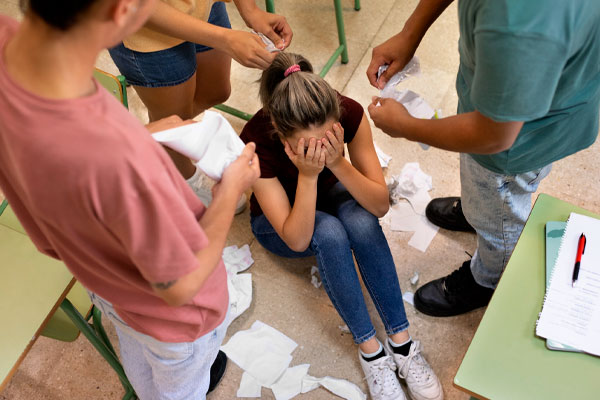Recent articles and videos
- How to improve your results as a practitioner?
- The PRS scale: a tool for measuring progress in therapy
- The systemic approach in psychiatric practice: where are we?
- How to become a psychotherapist
- NLP training and systemic approach, two complementary approaches
- How to become a therapist?
- Personal development training
- Breaking the silence around harassment
- Fight against the shadow of harassment
- Systemic approach training
- Problem Solving Scale: Assessing Clinical Improvement
- Support for people who are victims of moral harassment
- Thwarting moral harassment through a systemic and strategic approach
- A systemic approach to insomnia
- Understanding domestic violence using a systemic approach
Most Viewed Articles
- Online strategic systemic training course at LACT
- A surgeon's testimony on professional burnout
- Conflict management in business: Insurance case study
- 5 axioms of pragmatic communication (Paul Watzlawick)
- Family Caregiver: Managing Stress and Emotions at Work
- Assessment and management of PSR in business - Case study
- Bibliography
- LACT action and psychological and relational support unit
- Palo Alto's Strategic Systems Approach by Wittezaele
- BOOK "When work hurts"

Joana Mindziak Cornali is a Master 2 student in clinical psychology, psychotherapies course. She participates in individual interviews, conducts interviews for the research dissertation, and leads photo language and writing workshops for young adults with psychotic or high-risk symptoms. She participated in Emmanuelle Piquet’s “collective brain” initiative.
Samuel, a teenage victim of school bullying, is supported by Palo Alto's systemic approach. Faced with bullying, Samuel discovers the strength to overcome obstacles and the courage to change his perception thanks to targeted therapy and the involvement of his parents.

Joana Mindziak Cornali is a Master 2 student in clinical psychology, psychotherapies course. She participates in individual interviews, conducts interviews for the research dissertation, and leads photo language and writing workshops for young adults with psychotic or high-risk symptoms. She participated in Emmanuelle Piquet’s “collective brain” initiative.
A mother's story describes the journey of her son, a victim of school bullying. Through therapeutic follow-up with an effective strategic approach, Pierre will manage to regain self-confidence and the tools to awaken his ability to change his reality and feel stronger.

This article proposes intervention strategies against moral harassment, adopting a systemic approach to understand and modify relational dynamics. It offers concrete techniques to help victims regain control, with a focus on transforming harmful interactions into healthy relationships, and highlights the importance of strategic support to overcome harassment.

In a context where moral harassment at work is increasingly scrutinized, increasingly denounced or invoked, this article offers a systemic and strategic reading of the victim-aggressor dynamic. Understanding the interactions at play to open new avenues for prevention, support and change in the face of harassment.

Sylvie Malaval has worked for more than twenty years in the field of family relations and parenting. Today she works as an NLP therapist adopting a deeply systemic approach.
Domestic violence constitutes a major societal issue requiring in-depth understanding. This article explores the systemic dimension of this violence, reviewing their origin, their function and their participation in therapeutic intervention.


Padraic Gibson is a psychologist, family therapist and supervisor. He works in Ireland, Italy and Malta. He is a Senior Research Associate and Lecturer at Dublin City University and founder of the OCD® and Anxiety Disorders Clinic .
Understanding the influence of excessive screen use on the mental health of adolescents. As the digitalization of society accelerates, this article aims to analyze how time spent in front of screens affects the psychological well-being of young people. From the nuances of social media use to smartphone addiction to effective therapies for digital compulsions, discover the latest research and perspectives to understand and address this modern issue.




